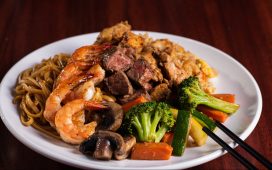Table Of Contents
Many people deal with food allergies and food intolerance. However, many people get these two confused. Quite a few people think they have food allergies when they only have a food intolerance. You must know the difference between the two. If you’re not sure what these two problems are, the symptoms they cause, and how to deal with them, here’s a closer look at the information you need to know about both food allergies and food intolerance.
Understanding Food Allergies
First, let’s look at food allergies. What exactly are these allergies? Well, an allergy is when the immune system responds, and when the body thinks a food ingredient is harmful and begins to fight it off with antibodies. Then, the symptoms occur as the body battles off the food. Usually, this allergy is to some type of protein. Common foods that cause food allergies include soy products, peanuts, shellfish, milk, tree nuts, wheat, and eggs. Food allergies aren’t very common. They only affect 2-4% of adults and slightly more children.
For those who deal with food allergies, the symptoms can be severe or quite mild. Some of the symptoms that can occur when you have a true food allergy include itchy skin, pain in the chest, hives or other rashes, stomach pain, nausea, difficulty in breathing, the airways swelling up, diarrhea, and anaphylaxis.

Understanding Food Intolerance
Food intolerance is a problem that occurs in the digestive system. When food causes irritation to the digestive system or people aren’t able to break down or digest certain foods, then this is known as intolerance. One prevalent type of food intolerance is lactose intolerance, which affects about 10% of the population today.
Symptoms of food intolerance are quite different than those of a food allergy. Some of the symptoms that can occur if you have a specific food intolerance include heartburn, stomach pain, nausea, headaches, nervousness, vomiting, irritability, bloating, gas, diarrhea, and cramps.
The Causes of a Food Allergy
Food allergies are caused when the body is susceptible to the chemical compound that’s in the food, which is usually a protein. They can start to occur after the body is exposed to a protein in a diet that the body believes is harmful to you. The body begins to create antibodies that fight off disease, and once you eat the food in the future, then it will trigger these antibodies to be released to try to get the chemical compound out of the body. This then causes the symptoms of the allergy to start occurring when the histamine is released in the body.
The Causes of Food Intolerance
A variety of things can cause food intolerance. In some cases, the body may not have the chemicals within the body to help digest specific proteins that are in the foods. There are intolerances to certain chemicals for coloring or preserving food as well, such as MSG and certain dyes. You could be having sorbitol intolerance if you experience bloating.
Knowing the Difference
Usually, food allergies can occur even when you only get a tiny amount of the food, and they’ll happen each time you consume that food. You need to avoid foods that cause an allergy. Food intolerances often have to do with the amount you get.
But then, with a healthy lifestyle – eating at healthy restaurants such as Jollibee Lucky Plaza, opting to eat healthy meals, and accompanied by moderate exercise, your physical health will be at its peak.






